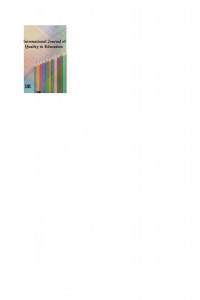Abstract
This short case study investigated the history of an Afghan student's English language learning process. The study also aimed to determine which learning style was best suited to Osman, as the participant of this study, to learning English. Moreover, the study attempted to assess oral skills, written skills, the participant’s attitudes towards learning English, preferences, and language learning history. Therefore, the data was collected from both an online survey questionnaire and a semi-structured interview. The findings of the study revealed that he, despite several social factors, could successfully learn English. During his language learning process, the number of his characteristics was determined. He was a visual learner and learned the target text which had pictorial aspects. Furthermore, the study also yielded that he would speak better than his classmates as he followed several other channels for learning English online, (i.e., BBC, CNN, Podcasts, YouTube, and other English learning websites).
References
- Akramy, S. A. (2020). Speaking anxiety in an Afghan EFL setting: A case study of an Afghan University, Language in India, 20(12), 161-182.
- Akramy, S. A. (2021). Implementation of outcome-based education (OBE) in Afghan universities: Lecturers’ voices. International Journal of Quality in Education, 5(2), 27-47.
- Akramy, S. A. (2022). Shocks and aftershocks of the COVID-19 pandemic in Afghanistan higher education institutions. Cogent Arts & Humanities, 9(1), 1-18. https://doi.org/10.1080/23311983.2022.2029802
- Akramy, S. A., Noori, A. Q., & Orfan, S. N. (2022). Attitudes of civil servants towards learning English: A case study of Afghanistan. Unpublished manuscript.
- Alimyar, Z. (2020). Attitudes and motivation of Afghan students towards learning English. Journal of English Education, 5(1), 19-33. http://dx.doi.org/10.31327//jee.v5i1.172
- Celce-Murcia, M. (2001). Teaching English as a second or foreign language. Boston: Heinle & Heinle.
- Coleman, H. (2019). The condition of English in multilingual Afghanistan. London: British Council.
- Deci, E., & Flaste, R. (1995). Why we do what we do: understanding of self-motivation. New York: Penguin Book.
- Derakhshan, A., & Karimi, E. (2015). The interference of first language and second language acquisition. Theory and Practice in Language Studies, 5(10), 2112-2117. http://dx.doi.org/10.17507/tpls.0510.19
- Hess, M. (2001). Giving constructive feedback in academic writing. Oxford: Oxford University Learning styles: the vark-questionnaire. (2018). Retrieved from http://vark-learn.com/
- Lightbown, M., & Spada, N. (2006). How languages are learned. Oxford: Oxford University Pres
- Maclntyre, A. (1995). Attitudes, motivation, and second language learning: A meta-analysis of studies conducted by Grander and associates. Language Learning 53/1:123-129. Orfan, S. N. (2020). Afghan undergraduate students’ attitudes towards learning English. Cogent Arts & Humanities, 7(1). http://dx.doi.org/10.1080/23311983.2020.1723831
- Orfan, S. N., & Noori, A. Q. (2021). Afghan Islamic religious scholars’ attitudes and motivations towards learning English. Language in India, 21(5), 162-171. Reid, J. M. (1987). The learning style preferences of ESL students. TESOL Quarterly, 21(1), 87-110.
- Schumann, J. H. (1976). Social distance as a factor in second language acquisition. Language Learning 26.135-143
- Sinha, A., Banerjee, N., Sinha, A., & Shastri, R. K. (2009). Interference of first language in the acquisition of second language. Journal of Psychology and counseling, 1(7), 117-122.
- Ur, P. (2012). A course in English language teaching. Cambridge: University Press
- Zafary, A. (2021). Afghan EFL students’ perceptions about English pronunciation. Language in India, 21(4), 63-80.
Details
| Primary Language | English |
|---|---|
| Subjects | Studies on Education |
| Journal Section | Articles |
| Authors | |
| Publication Date | June 3, 2022 |
| Submission Date | February 2, 2022 |
| Published in Issue | Year 2022 Volume: 6 Issue: 2 |


